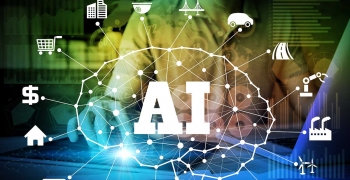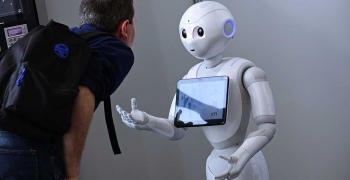In network engineering and operations, log analysis is a key task. It involves navigating through vast amounts of data to spot anomalies, troubleshoot issues, and uncover valuable insights. Traditionally, this process has been manual and time-consuming. But with artificial intelligence (AI) on the scene, we can now automate and streamline it.
Automating log analysis not only saves time but also enhances accuracy by reducing human error. AI-driven tools can quickly identify patterns and anomalies that might be missed during manual reviews. This allows network engineers and telecom professionals to focus more on strategic tasks rather than getting bogged down in data crunching.
Crew AI is revolutionizing how we handle log analysis. It's a powerful framework that facilitates collaboration among multiple AI agents to tackle large volumes of logs effectively. Think of it as harnessing the collective brainpower of these AI agents to sift through data and pull out valuable insights.
The Challenge: Analysing Massive 5G RAN PCAP Logs:
In this blog post, we're exploring a practical scenario where we utilized Crew AI to analyze 5G Radio Access Network (RAN) PCAP logs. These logs are substantial, often surpassing 150 MB for just 2-3 minutes of data and containing billions of lines. Our aim was to create a system capable of swiftly filtering and analyzing these logs to pinpoint specific events, patterns, or errors.
Read on as we break down our approach and share key takeaways that could enhance your network analysis toolkit.
The Crew AI Approach:
We designed a three-agent Crew AI system to tackle this challenge:
- Log Filtering Agent: This agent focused on removing irrelevant lines from the PCAP log file. It was designed to concentrate on specific events or timeframes, ensuring only relevant data was passed along for analysis.
- Query Processing Agent: This agent was responsible for understanding and processing user queries. It would parse the query and identify the relevant keywords or patterns to search for in the filtered logs.
- Log Analysis Agent: This agent would analyze the filtered logs based on the user's query and generate a concise report or visualization.
The Roadblocks Encountered:
While the concept of using Crew AI for log analysis is compelling, we encountered several challenges during implementation:
- Token Limitations: One primary limitation of language models is their context window size, which refers to the amount of text they can process at once. For large PCAP logs, this context window was insufficient to capture the entire log file.
- Complex Log Structures: PCAP logs are highly structured with specific formats and protocols. Extracting relevant information from these logs required sophisticated parsing techniques, which exceeded the capabilities of the agents.
- Query Ambiguity: User queries can often be ambiguous, especially when involving technical terms and jargon. The query processing agent struggled to accurately interpret and translate these queries into specific search criteria.
Lessons Learned and Future Directions:
Despite the challenges, our experience with Crew AI for log analysis provided valuable insights:
- Context Window Limitations: To address this issue, we can explore techniques like chunking the log file into smaller segments or using specialized tools to preprocess the logs. However, it is crucial to ensure proper overlap between these segments to maintain contextual integrity. Additionally, managing a large number of chunks presents another challenge.
- Log Parsing: Developing custom parsing agents or integrating existing log parsing tools can enhance the accuracy and efficiency of log analysis.
- Query Refinement: By incorporating natural language processing techniques and domain-specific knowledge, the query processing agent can better understand user queries.
Verdict:
In conclusion, while Crew AI offers significant potential for automating log analysis, it is crucial to carefully evaluate its limitations and challenges. By addressing these issues and employing advanced techniques, we can unlock the full potential of AI-powered log analysis.
Key Considerations for Implementing Crew AI Solutions:
- Data Privacy and Security: When working with sensitive log data, it's crucial to implement robust security measures to protect privacy and confidentiality.
- Scalability: The Crew AI system should be designed to accommodate increasing volumes of log data and adapt to evolving query requirements.
- User Experience: A user-friendly interface is essential for effectively interacting with the system and interpreting results.
- Continuous Learning: Agents should be continuously trained using new data and feedback to enhance their performance over time.
By carefully considering these factors, we can build powerful and effective Crew AI systems that revolutionize log analysis and provide valuable insights for network operations.




